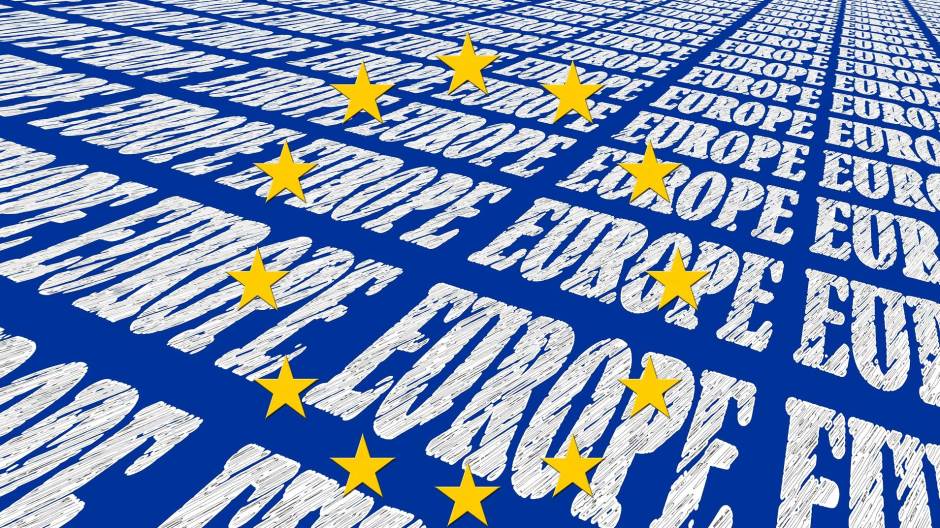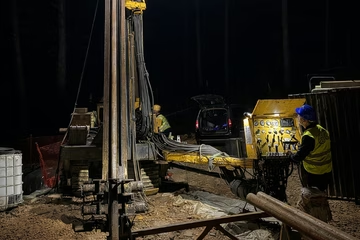
Hundreds of EU citizens living in Britain have been turned away at polling stations as they attempted to vote in the European elections on Thursday, campaigners say.
Voters reported confusion with the process for participation in the elections, failings by local councils, and names being crossed off voting lists at polling stations.
Hours after the polls opened, the hashtag #DeniedMyVote began to trend on Twitter as European nationals began reporting they had been turned away.
Campaigners fear the number of EU nationals denied a vote will be in the thousands by the time polls close on Thursday evening. Maike Bohn, the co-founder of the3million, a campaign group which represents EU nationals living in the UK, told CNN the situation reflects "a serious democratic deficit" on the part of British authorities.
EU nationals who live in the UK can participate in European elections but must make a written declaration, known as a UC1/EC6 form, that guarantees they will not vote in their home country.
It appears that the unplanned delay to the Brexit process has contributed to the confusion. Britain's participation in the 2019 European elections was only confirmed last month, after the country's failure to agree a deal to leave the EU by the original March 29 deadline.
Campaigners accuse British authorities of failing to inform EU citizens that they had to complete an extra step to guarantee their right to vote.
A number of Members of Parliament (MPs) expressed alarm over the reports. Joanna Cherry of the Scottish National Party said on Twitter: "There's something very rotten at the heart of British politics when EU citizens resident here are being denied their right to vote." The Labour MP and shadow foreign minister Catherine West called it a "national scandal."
"Reports are flooding in of EU nationals being denied the right to vote in today's elections, despite the fact most of them were registered to vote in local elections that took place a few weeks ago. I was granted an urgent question back in April, at which I alerted the government to this problem -- they refused to act."
Three EU nationals who spoke to CNN told of confusion over the process for participating in the poll.
Swedish citizen Lina Dencik, who lives in the southwestern city of Bristol, told CNN that she was turned away from the polling booth because the documentation had not reached her before the May 7 voter registration deadline for EU citizens.
"When I went to the polling station this morning, my name had been crossed out on the list and I was told I was not eligible to vote as a European citizen," she said. "I challenged this and the patrolling officer provided me with an emergency number to call. I called this number and was told that a form to declare that I would not be voting in Sweden had not been sent out in time and that I am therefore not able to vote."
Emeline Mimie Morine, a French national who lectures at the University of Stirling in central Scotland, who has lived in the UK for ten years, said her inability to vote amounted to "disenfranchisement." She had also called a helpline number provided, she said.
"The woman on the phone did see me as registered and put me on hold for a while. After a few minutes, she explained that there was a form I should have filled in as an EU citizen but hadn't, and there was nothing they could do," she said. "I asked where this form was so that I could fill it and this would not happen again. She did not answer but dismissed my question, stating that there was no point, the form was only for European elections, and it was unlikely we would need it again with Brexit."
The3Million blames Britain's Electoral Commission and the government for mishandling the issue. In a letter sent to the head of the commission, it said that the commission had reneged on a 2014 promise to send the form to all registered EU citizens.
It also complained of vague and confusing information that did not make it clear that EU citizens had to complete an extra step to register.
"We maintain that the Electoral Commission's lack of clear guidance has led to an inconsistent approach by local authorities to the registration process for EU27 citizens," the letter added.
A spokesperson for the Electoral Commission said it had recommended changes to the process but said it was powerless to act without changes to the law.
"The process for EU citizens could be improved, and we made recommendations to improve the process following the 2014 European Parliamentary election," the spokesperson said.
But those improvements were "reliant on changes to the electoral law, which can only be taken forward by government and Parliament."
The spokesperson suggested the commission not have time to follow up on its recommendations as the UK government only confirmed it would be taking part in the European elections on May 7.
"I should point out that our recommendations were made before the EU referendum. After the referendum, the UK government was clear that the European Parliamentary elections in 2019 would not take place."
The spokesperson said that the information about the form could be downloaded from its website, adding that it had also advised council electoral registration officers to identify European voters and send them the form.
Bohn maintained that while the time frame was tight, the commission could clearly see the problem brewing.
"But then they could have run a social media campaign, or tweet a link to the document, they could also email all electoral officers and say please contact EU citizens or please consider extending the deadline," she said.
"What you have in theory is 3 million people disenfranchised," Bohn told CNN. "A lot of people [EU citizens living in the UK] proactively found out what to do, but hundreds or thousands of people simply would not have known it and can you blame them?"
Kakvo je tvoje mišljenje o ovome?
Učestvuj u diskusiji ili pročitaj komentare





 Srbija
Srbija
 Hrvatska
Hrvatska
 Slovenija
Slovenija


























































